Slate expectations for world's best female stone skimmer
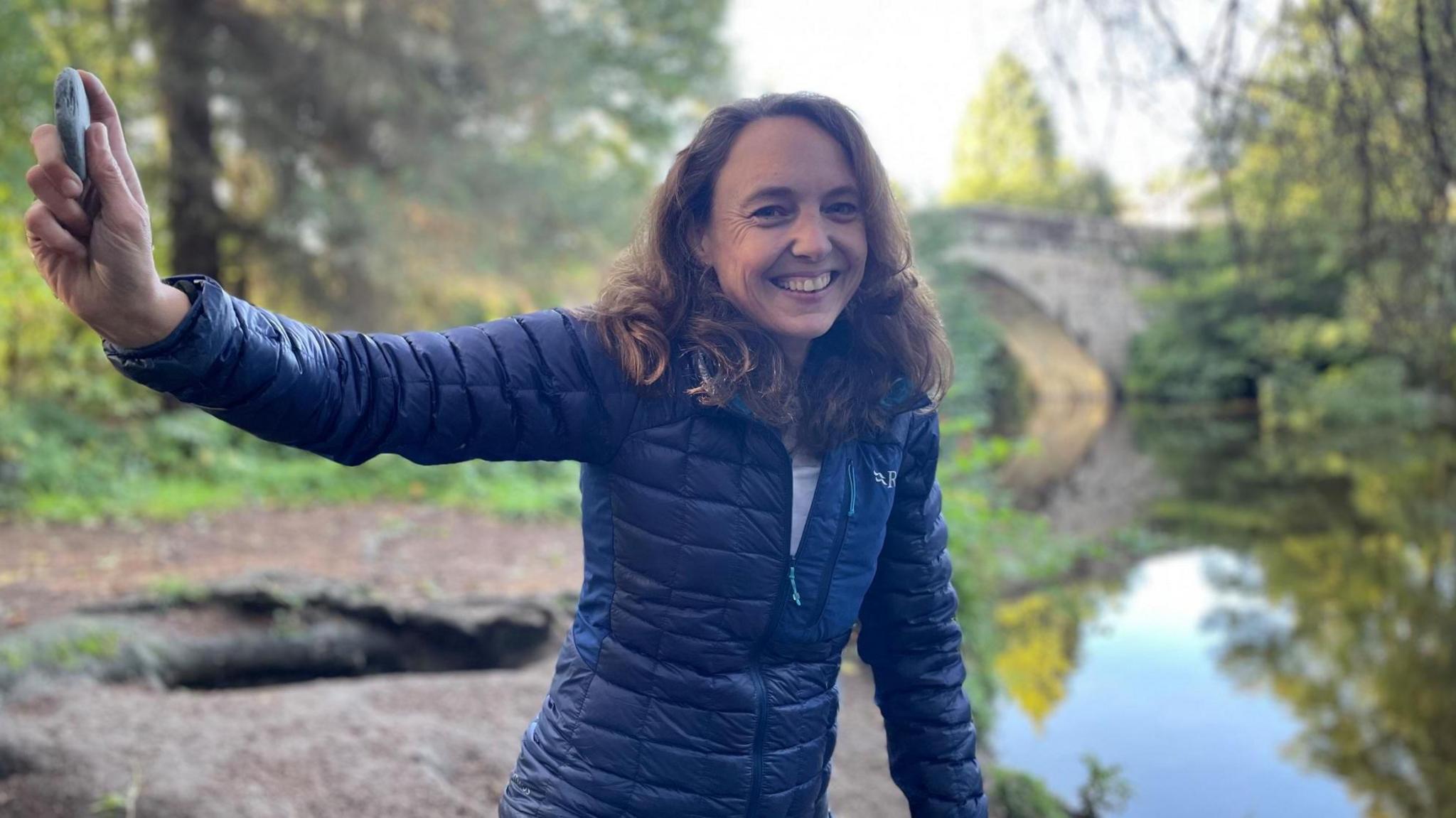
Lucy Wood is the best of the best - winning the world title on six occasions
- Published
Lucy Wood bends her knees and takes the strain as she carefully lifts up the bag from her car boot and places it on the ground.
"These are my stones," she explains.
"I love them."
The bag is piled high with hundreds of clean, grey pieces of slate.
"This is Easdale slate" she proudly exclaims.
Easdale plays a significant part in Lucy's story.
It is the smallest permanently inhabited island of the Inner Hebrides, just off the west coast of Scotland, with a population of about 60 people.
Each September locals brace themselves as about two thousand visitors arrive for the World Stone Skimming Championships - including four hundred would-be winners.
According to six-time female champion Lucy, "there's a huge Planes Trains and Automobiles element" to find the island which she describes as being "in the middle of nowhere".
She has been making the 365-mile journey from her home in Sheffield, South Yorkshire since 2011, when a family holiday introduced her to the "fun, quirky" competition.
Lucy's inital attempt saw her take third in the women's contest, which was first organised in 1983 by island resident Albert Baker.
Watch: Top tips from Lucy on how to skim that stone
So was Lucy always destined for stone skimming greatness?
"Well, not exactly" she laughs.
"It's just an innate thing that we do when we see a body of water, we try to pick things up and throw them at the water.
"You watch any kids, they'll always do that. So I think it's something that I've always done when I've been walking with my parents, my grandparents."
Perhaps there were early signs of Lucy's expertise? She admits to being "very good" at throwing.
"I used to be out on the boundary chucking cricket balls really far distances and I used to do discus and stuff like that," she recalls with a smile.
Unfortunately, since her first foray into the sport Lucy says she has encountered some sexism in the stone skimming world.
"People have said, 'oh it's really great to see a woman skim as well as a man'. Those kind of comments really rile on me."
"There is a perception that women just aren't throwers but it's complete nonsense. Women can definitely skim and they can definitely throw," she adds.
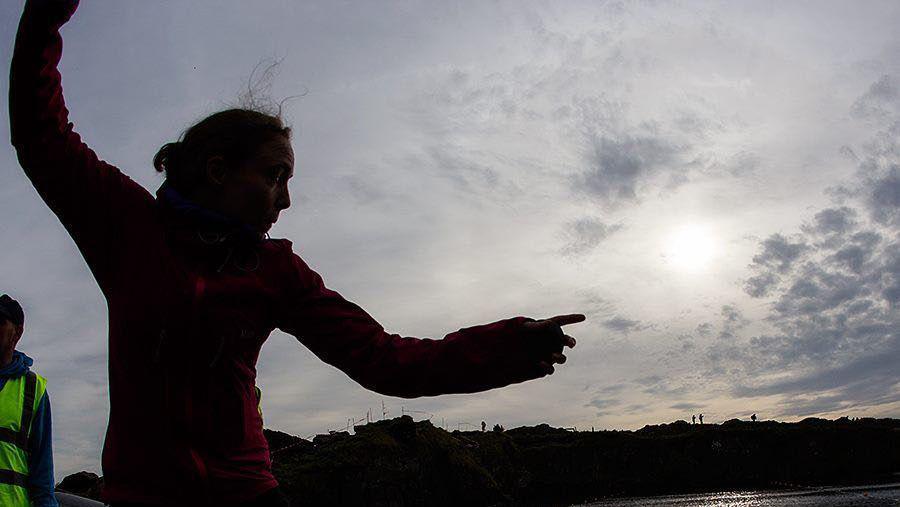
Lucy took part in her first world championships in 2011 while holidaying on the west coast of Scotland
After her debut success, the self-employed property business owner returned the following year to win her first women's title.
Five more victories have followed in 2013, 2015, 2016, 2018 and earlier this month Lucy took home the 2025 crown.
She holds the record for the most championship titles.
Success has come with an increase in expectation.
"It's a bit weird for me now because there is a little bit of hype.
"I used to be a bit incognito and I quite like it because I don't normally like all the limelight.
"This year they had a big announcement where they were like, 'the five-times world champion' and there's a big whoop and all these people are staring at you, which just makes it incredibly intimidating."
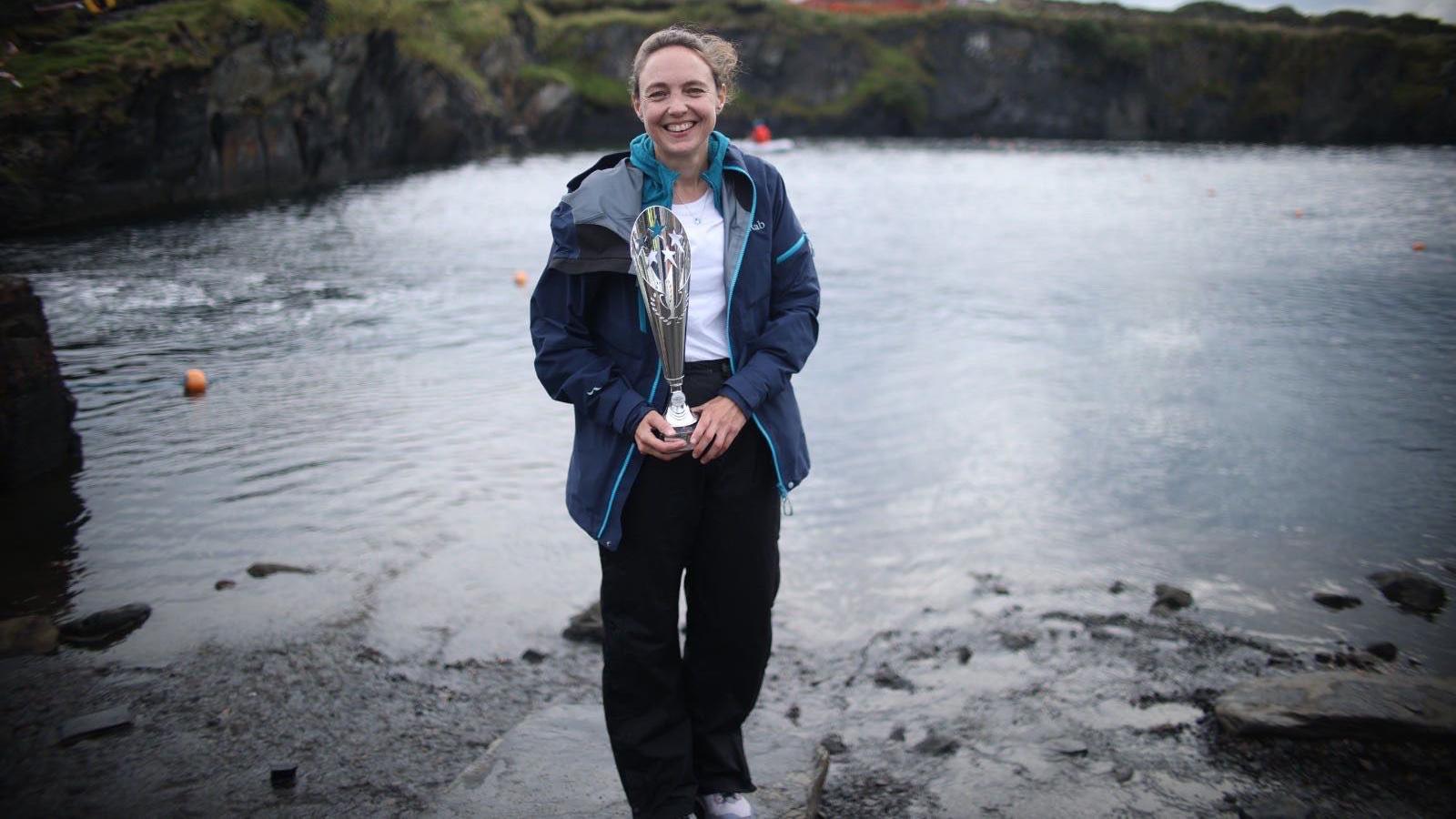
Lucy won her first title in 2012 and her latest earlier this month
For the world championships the amount of skims or 'skips', as it's known by American competitors, isn't necessarily important, Lucy explains.
"I never really count the skims. It's all judged on distance but it has to have a minimum of two bounces before it sinks so you can't just throw it."
It was a skim of 48 metres (158ft) earlier this month which bagged Lucy the women's title in the island's flooded 18th Century quarry, which offers a natural arena for spectators to watch the spectacle.
Some of the male competitors do sometimes manage to hit the back wall at 63 metres (207ft), which will signal not only an airhorn celebration but an invitation to a final skim-off involving a test of accuracy as well as distance.
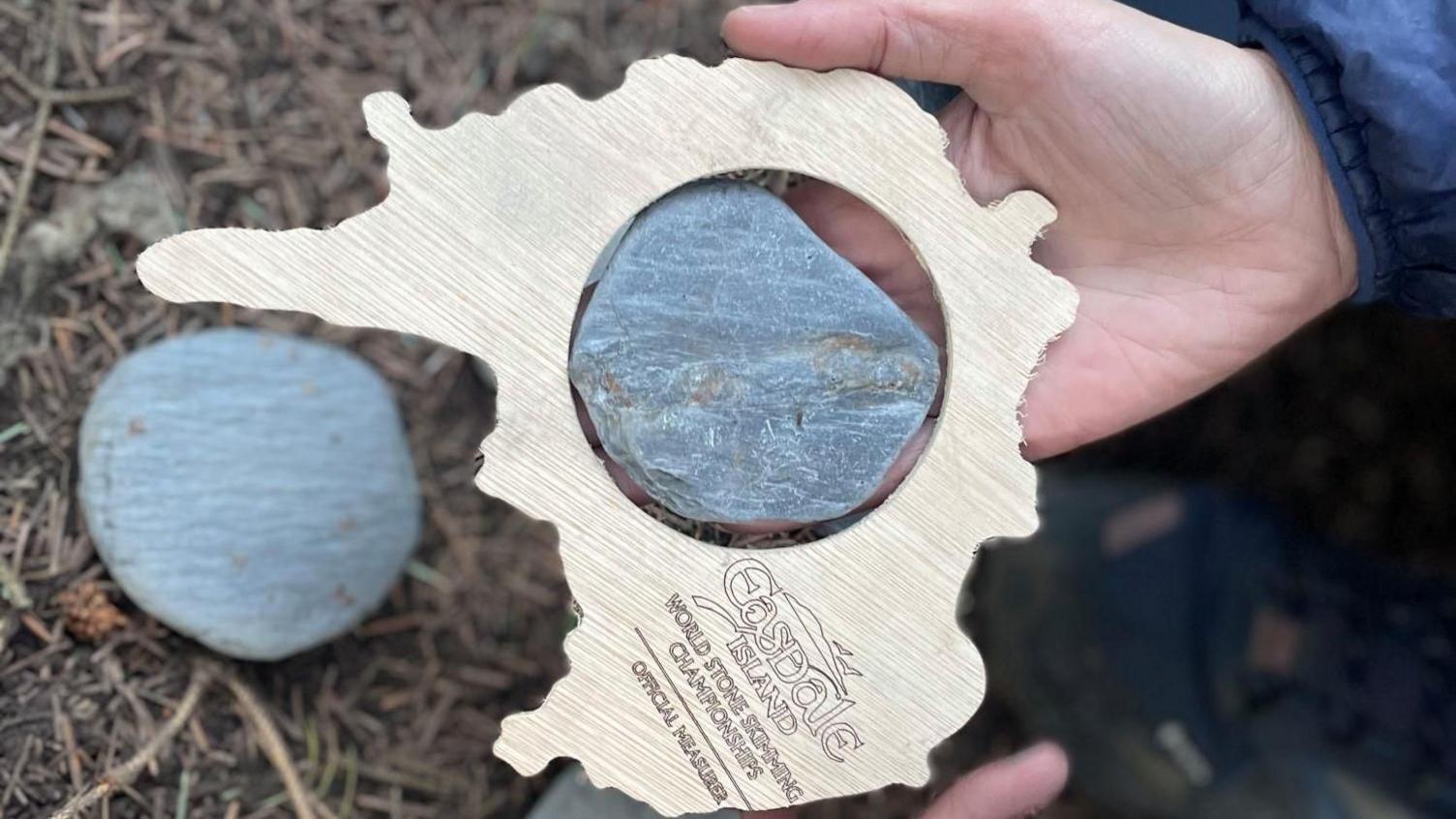
Any stones used in the world championships must fit through the Ring of Truth
There's a reason the champion lugs around a heavy bag of stones in her car boot.
For one thing, it helps with practice at local Sheffield reservoirs, Redmires and Damflask.
Finding the right stone is crucial.
"One of the things for picking a stone is the size of my hand. I've got fairly small hands.
"What you're looking for is that it's kind of a bit uniform around the edges and that it fits in your hand.
"It's almost like you become one with the slate. If you had it in your pocket, you would be touching it all the time," Lucy says.
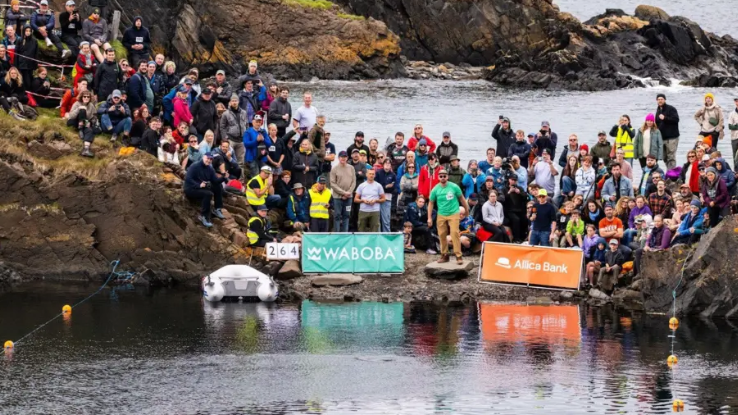
The world championships has been held on the island of Easdale in Scotland since it began in 1983
There was some controversy at this year's tournament.
Rules state that stones must come from naturally occurring island slate and they must also fit through the Ring of Truth, a three-inch (7.6cm) circular measuring device.
However some stones were found to have been ground into a "suspiciously circular" shape to help them bounce on water. It led to some participants being disqualified.
Organiser Dr Kyle Mathews told BBC News the offenders had "held their hands up" and apologised.
Lucy is quick to praise the organisers for their swift action.
"They acted really quickly and decisively and fairly."
As to the individuals involved, she adds: "They were very honest about it, which is something you wouldn't get in every sport. The integrity of the competition is huge for everybody who takes part, including the people who did this.
"It was a mistake and it won't happen again. Next year none of us have got any questions about going back and taking part in a really fair competition."
While Lucy will certainly be back in Scotland to defend her title in 2026 she admits competing in other tournaments around the world is tricky when juggling work and family life.
She also has tips for the casual stone skimmer:
"You should probably always try and aim to start with your hand just a little bit higher than your waist.
"The other thing you have to think about is the angle at which the stone hits the water, the research from a French physicist, said 20 degrees.
"Then just stand-up straight, plant your feet and use your core."
Get in touch
Tell us which stories we should cover in Yorkshire
Listen to highlights from South Yorkshire on BBC Sounds, catch up with the latest episode of Look North